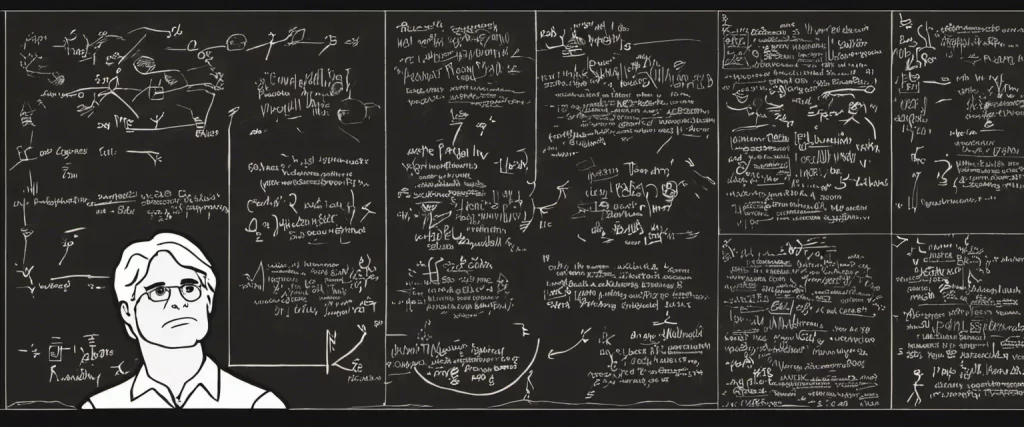——The Last Lecture by Randy Pausch & When Breath Becomes Air by Paul Kalanithi
In the realm of autobiographical literature, two profound and poignant books stand out, inviting readers into the remarkable journeys of individuals grappling with mortality. “The Last Lecture” by Randy Pausch and “When Breath Becomes Air” by Paul Kalanithi capture the raw vulnerability, resilience, and introspection that accompany the fragility of life. These two memoirs offer an intimate exploration of the human experience, examining how individuals confront and find meaning in the face of impending death.
Published in 2008, “The Last Lecture” chronicles the final lessons of Randy Pausch, a computer science professor at Carnegie Mellon University who was diagnosed with terminal pancreatic cancer. Inspired by his popular final lecture which he delivered under the same title, Pausch expands upon the themes of his speech in his book. Reflecting on his life’s accomplishments, lessons learned, and dreams unfulfilled, Pausch imparts invaluable wisdom to his readers, urging them to seize every moment and appreciate the value of time. Through his own experiences and captivating anecdotes, Pausch shares profound insights on perseverance, optimism, and the pursuit of one’s passions, making “The Last Lecture” a testament to the power of living fully, even in the face of adversity.
On the other hand, “When Breath Becomes Air,” published posthumously in 2016, offers a meditative account of Paul Kalanithi’s juxtaposition between his roles as a neurosurgeon and a terminal lung cancer patient. Kalanithi grapples with the existential questions of life’s purpose and legacy as he graces the threshold of his mortality. With eloquent prose and poignant introspection, he delves into his experiences in the operating room, imparting a unique perspective on the human condition and the complexities of the doctor-patient relationship. Kalanithi’s memoir explores themes of love, identity, and the transcendence of medicine, weaving together profound reflections on mortality and the profound impact it has on one’s perception of life.
While both “The Last Lecture” and “When Breath Becomes Air” encapsulate the lived experiences of remarkable individuals confronting their own mortality, they differ in their narrative approaches and the perspectives they offer. Pausch’s book embraces a more conversational and uplifting tone, emphasizing the importance of optimism and resilience. Conversely, Kalanithi’s memoir delves into the philosophical and spiritual dimensions of life and death, offering a more contemplative and introspective narrative.
In this comparative study, we embark on an exploration of these two transformative works, examining the unique lenses through which Randy Pausch and Paul Kalanithi articulate their experiences with impending mortality. Through a careful analysis of narrative style, thematic substance, and underlying messages, we aim to unravel the profound impact these memoirs have on readers as they grapple with their own mortality and search for purpose and meaning in their lives.
Brief Summary of Two Books
The Last Lecture by Randy Pausch
The Last Lecture” by Randy Pausch is a powerful memoir based on a lecture given by the author, a computer science professor at Carnegie Mellon University, after he was diagnosed with terminal pancreatic cancer. Knowing it was his last chance to deliver a meaningful message, Pausch shared his life lessons and wisdom with the audience.
The book explores Pausch’s childhood dreams and his journey to fulfilling them. He discusses his experiences at Disney Imagineering, his passion for virtual reality, and his role in developing the Alice programming project. Pausch also touches on his personal life, including his marriage, children, and the challenges he faced as a father.
Throughout the book, Pausch emphasizes the importance of positivity, perseverance, and pursuing meaningful dreams. He encourages readers to cherish the time they have and make the most of every moment. Pausch’s optimism and determination shine through his anecdotes, including stories of overcoming obstacles and achieving seemingly impossible goals.
While acknowledging the unfairness of his illness and imminent death, Pausch remains inspiring and hopeful. He encourages readers to focus on what truly matters, nurturing relationships, and leaving a positive impact on others. Pausch’s powerful and heartfelt words continue to resonate long after his passing, serving as a reminder to live fully and appreciate the preciousness of life.
In essence, “The Last Lecture” is a profound and moving book that encourages readers to reflect on their own lives and prioritize what truly matters, drawing inspiration from the life of Randy Pausch.
When Breath Becomes Air by Paul Kalanithi
When Breath Becomes Air is a memoir written by Paul Kalanithi, a neurosurgeon who was diagnosed with stage IV lung cancer at the age of 36. The book offers a poignant reflection on life, death, and the meaning of existence.
The story begins with Paul’s childhood and his early fascination with literature and science. Inspired by his love for both disciplines, he decides to pursue a career in medicine. After years of extensive training, Paul becomes a successful and respected neurosurgeon, driven by the desire to make a difference in his patients’ lives.
However, his world is turned upside down when he receives the devastating news of his terminal illness. The remainder of the book chronicles his battle with cancer, as he navigates the complexities of treatment while contemplating the fragility of life.
Paul poignantly expresses his fears, hopes, and aspirations throughout his fight against the disease. The book delves into philosophical questions about existence, mortality, and purpose, as Paul grapples with his own mortality and tries to find meaning in the face of death.
While confronting the reality of his own mortality, Paul also explores the concept of patient care and how it can be deeply personal and compassionate. He reflects on the challenges faced by both doctors and patients in accepting the difficult realities of life and death.
When Breath Becomes Air is a deeply moving and introspective memoir that asks profound questions about what it means to live a meaningful life. Through Paul’s courageous and honest account, readers are invited to contemplate their own values, purpose, and mortality, ultimately leaving them with a renewed appreciation for the preciousness of life.
Comparison between Two Books

Similarities in inspiring minds
Both The Last Lecture by Randy Pausch and When Breath Becomes Air by Paul Kalanithi are deeply inspiring memoirs that share the experiences of individuals facing terminal illnesses. Despite their different backgrounds, the authors’ journeys and reflections on life offer powerful lessons and insights that inspire readers.
One similarity between these books is the authors’ determination to make the most of their limited time. Randy Pausch, a computer science professor, and Paul Kalanithi, a neurosurgeon, both grapple with the devastating reality of their illness, but they refuse to let it define their lives. Instead, they actively pursue their passions and seek meaning and purpose in their remaining days. Their unwavering commitment to continue growing, learning, and contributing to society is truly inspirational.
Both Pausch and Kalanithi emphasize the importance of cherishing relationships and finding joy in the small moments. Pausch, in his last lecture, discusses the significance of his relationships with family, friends, and colleagues, while also highlighting the importance of laughter and embracing fun and playfulness even during difficult times. Kalanithi, in his memoir, finds solace in spending quality time with his loved ones, cherishing every interaction and creating lasting memories.
Furthermore, the authors share a profound sense of gratitude and appreciation for life itself. Pausch frequently expresses his gratitude for the opportunities he had and the people who influenced his journey. Kalanithi, on the other hand, reflects on the beauty and wonder of existence, finding solace in the realization that life is an extraordinary gift, even in the face of mortality.
Both books also explore the authors’ introspection and search for a deeper understanding of the human experience. Pausch and Kalanithi delve into philosophical and spiritual questions about the meaning of life, identity, and the nature of suffering. Their contemplations and reflections offer profound insights into the human condition, encouraging readers to reflect on their own lives and priorities.
In summary, The Last Lecture and When Breath Becomes Air parallel each other in terms of the inspiration they provide. Both books remind readers of the fragility and preciousness of life, while encouraging them to embrace every moment, prioritize meaningful relationships, find joy, practice gratitude, and ponder the deeper questions of existence. Through their courageous and thought-provoking stories, Pausch and Kalanithi continue to inspire countless individuals to live with purpose and appreciate the beauty of the human experience.
Divergences in inspiring minds
Both The Last Lecture by Randy Pausch and When Breath Becomes Air by Paul Kalanithi share the common theme of facing mortality and finding inspiration in the face of adversity. However, these books diverge in how they approach and inspire minds.
In The Last Lecture, Randy Pausch offers his readers a powerful and optimistic perspective on life, despite his terminal cancer diagnosis. Through his engaging storytelling and vivid imagination, Pausch encourages his audience to pursue their dreams, seize opportunities, and embrace the beauty of life. His message revolves around the importance of cherishing the present moment and living with purpose. Pausch’s inspiring teachings appeal to a wide range of readers, from students seeking guidance on career choices to individuals searching for a renewed sense of appreciation for life.
On the other hand, When Breath Becomes Air by Paul Kalanithi takes a more introspective and philosophical approach to inspire minds. Kalanithi, a neurosurgeon diagnosed with stage IV lung cancer, delves deep into the meaning of life and the human condition. His reflections on mortality and the fragility of existence compel readers to contemplate the value of their own lives. Kalanithi’s writing skillfully intertwines elements of medicine, literature, and spirituality, creating a rich tapestry that not only inspires but also challenges readers’ preconceived notions about life’s purpose and the pursuit of happiness.
While both books share the power to inspire, the divergence lies in their methods and underlying messages. The Last Lecture focuses on embracing life, seizing the moment, and finding joy in every experience, whereas When Breath Becomes Air invites readers to ponder the existential aspects of life and question their priorities. Pausch’s book aims to instill a sense of gratitude and encourages readers to make the most out of their time, while Kalanithi’s work prompts deeper introspection and encourages readers to reflect on the larger meaning of life.
In conclusion, The Last Lecture and When Breath Becomes Air both inspire minds through their poignant stories of individuals facing their mortality. While Pausch’s book emphasizes living life to the fullest and finding happiness, Kalanithi’s work sparks deeper contemplation about the purpose of existence. These diverging approaches offer readers a diverse range of perspectives and inspire minds in different ways.

Conclusion
Both “The Last Lecture” by Randy Pausch and “When Breath Becomes Air” by Paul Kalanithi are highly regarded books that offer deeply insightful perspectives on life and mortality. Deciding which book is more worthy of reading ultimately depends on personal preferences and interests.
“The Last Lecture” is based on a lecture that Randy Pausch, a computer science professor diagnosed with terminal cancer, delivered to his students titled “Really Achieving Your Childhood Dreams.” The book recounts Pausch’s life experiences, lessons, and wisdom, as he reflects on what truly matters in life. It is an inspirational and heartwarming read that encourages readers to pursue their dreams and find joy despite the challenges they may face.
On the other hand, “When Breath Becomes Air” is a memoir written by Paul Kalanithi, a neurosurgeon who was diagnosed with stage IV lung cancer at the peak of his medical career. The book explores themes of mortality, the pursuit of meaning, and the complexities of human existence. Kalanithi’s eloquent writing and emotional journey offer profound insights into the nature of life and death.
Ultimately, it depends on what resonates more with you personally – Pausch’s uplifting and motivational message or Kalanithi’s thought-provoking exploration of life’s purpose. Both books have touched the hearts of many readers and are significant in their own ways. It might be worthwhile to read summaries, reviews, or excerpts of both books to get an idea of which narrative you find more compelling before making a final decision.



